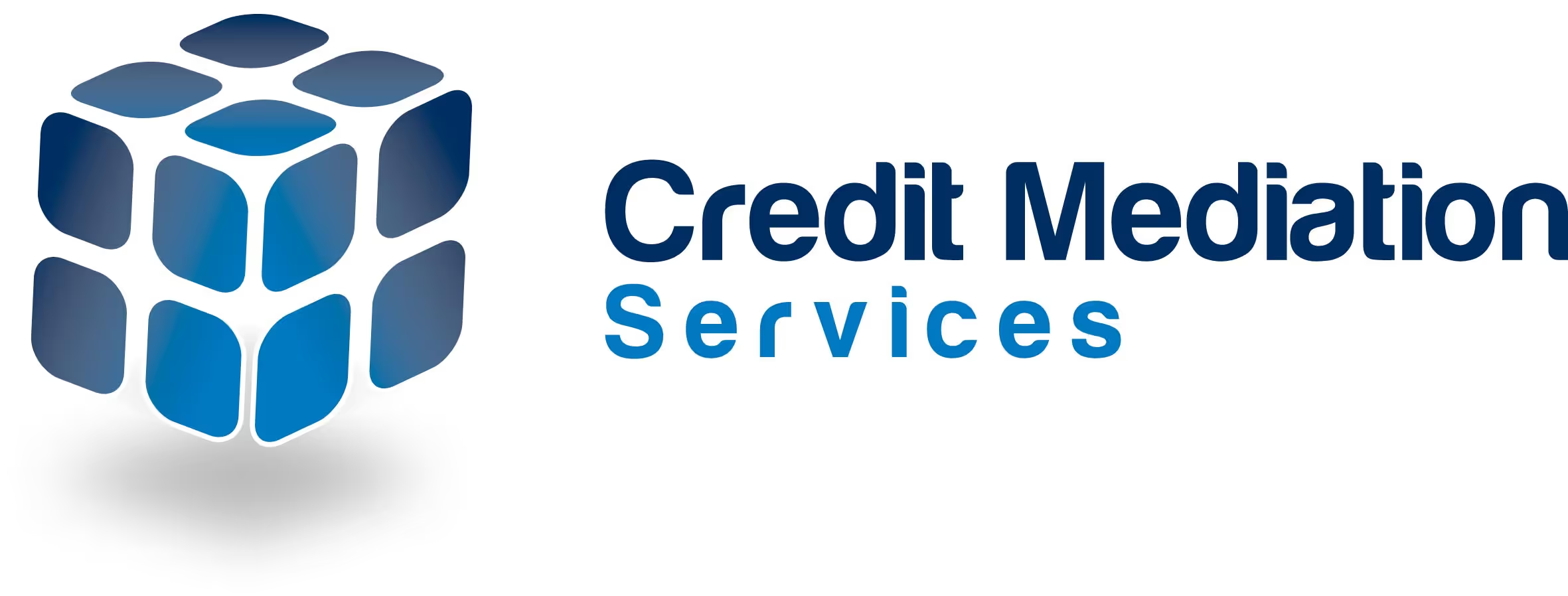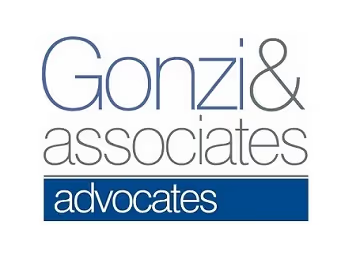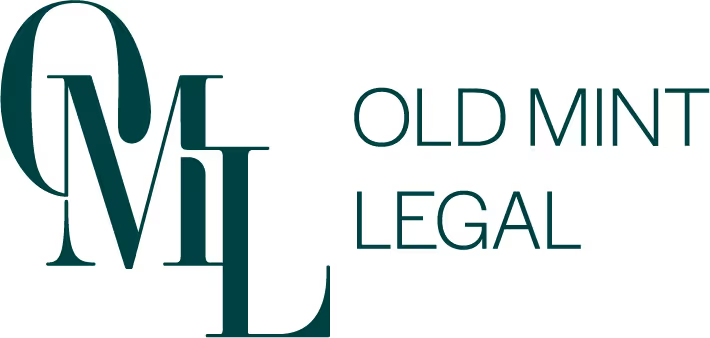Top-Rated Debt Collection Agency in Malta
Fast and reliable debt collection in Malta - no upfront costs, only pay for success. Request a FREE Consultation or upload your claim today.






The Ultimate Guide to Debt Collection in Malta
Why you can trust this guide
At Debitura, we uphold the highest standards of impartiality and precision to bring you comprehensive guides on international debt collection. Our editorial team boasts over a decade of specialized experience in this domain.
Questions or feedback? Email us at contact@debitura.com — we update this guide based on your input.
Debitura By the Numbers:
- 10+ years focused on international debt collection
- 100+ local attorneys in our partner network
- $100M+ recovered for clients in the last 18 months
- 4.9/5 average rating from 621 reviews
Expert-led, locally validated
Written by Robin Tam (16 years in global B2B debt recovery). Every page is reviewed by top local attorneys to ensure legal accuracy and practical steps you can use.
Contributing local experts:
Last updated:
Welcome to the ultimate resource for mastering debt collection in Malta. At Debitura, we blend unparalleled local knowledge with broad international experience to ensure your debts are recovered efficiently. Discover the depths of Maltese debt recovery with us by your side, navigating through complexities with ease and precision.
An Insight into Key Stakeholders in Malta's Debt Collection Ecosystem
Understanding Malta's debt recovery framework entails familiarizing oneself with the crucial roles played by specific key actors. Here's a brief overview:
Debt Collection Agencies in Malta
Debt Collection Agencies are the front-line players in Malta's debt recovery process. These agencies take the initial steps in contacting debtors, attempting to secure payment through negotiation and communication strategies. While they handle the pre-legal collection aspect efficiently, their activities are regulated by Maltese law, ensuring ethical and fair practices during the collection process. When cases transition beyond negotiation, these agencies often collaborate with lawyers or seek the aid of bailiffs for enforcement. Their role is pivotal in maintaining a balance between creditor rights and debtor protection, underlined by Maltese consumer protection laws and regulations. Limitations include the inability to enforce payment directly, necessitating legal assistance for further action.
Source: Malta Legislation
Lawyers in Malta
Lawyers take a central role in Malta's debt collection landscape, particularly when disputes reach a level that requires legal intervention. Specializing in the judicial collection phase, they prepare and file necessary legal documents, represent creditors in court, and ensure that the collection process adheres to the full spectrum of Maltese law. Their expertise is fundamental for navigating complex legal landscapes, facilitating the transition from negotiation to enforcement, and, when necessary, filing for insolvency proceedings. It's important to note that their involvement is critical for addressing claims that cannot be resolved through pre-legal collection efforts alone, thereby encompassing a broader scope of tasks governed by legal and regulatory frameworks.
Bailiffs in Malta
In Malta, bailiffs operate under the authority of the court to perform specific enforcement actions once a debt recovery case has entered the judicial phase. Their responsibilities include delivering official court documents to the parties involved, executing court orders, and overseeing the seizure of assets, if necessary. Bailiffs are instrumental in the enforcement phase of debt collection, ensuring that court mandates are carried out in accordance with Maltese laws, such as the Code of Organization and Civil Procedure. However, their functions are judicially bounded, meaning they act within the limits set by court orders and cannot perform tasks beyond what is legally stipulated.
Malta Debt Collection Laws and Regulations: Legal Framework and Compliance
Engaging in debt collection in Malta necessitates a deep understanding of its legal landscape. This ensures not only adherence to regulatory standards but also promotes efficient and ethical debt recovery practices essential for sustaining industry respectability.
The Regulatory Environment and Civil Court System
In Malta, the civil court system plays a pivotal role in the debt collection process. Here’s how it functions:
- The civil court system in Malta is broadly categorized into Superior Courts and Inferior Courts, handling cases based on their nature and magnitude.
- The Court of Magistrates (as an Inferior Court) operates within two jurisdictions: Malta and Gozo. It deals with claims not exceeding EUR 15,000.
- Superior Courts, such as the Civil Court, handle cases exceeding the monetary limit of Inferior Courts and have sections that cater to different legal needs, including a Family Section and a Commercial Section.
- The Court of Appeal reviews decisions from both Superior and Inferior Courts, holding the power to revise them based on legal and factual grounds.
- Legal representation by a qualified lawyer is required for proceedings in Superior Courts, whereas in Inferior Courts, parties may represent themselves.
Source: Legislation Malta
Key Legislation Impacting Debt Collection in Malta
Malta’s legal framework surrounding debt collection is governed by several key laws and regulations:
- Code of Organization and Civil Procedure (Chapter 12 of the Laws of Malta): Outlines procedural aspects of litigation, including filing claims and enforcing judgments, crucial for debt recovery.
- European Payment Order: Facilitates cross-border debt collection within the EU, applicable for undisputed monetary claims across Member States, including Malta.
- Data Protection Act (Chapter 586 of the Laws of Malta) and GDPR: Strict regulations on the processing of personal data, significantly impacting how debtor information is handled during collection processes.
Consumer Protection and Fair Debt Collection Practices in Malta
Consumer protection in Malta, especially regarding debt collection, is underpinned by EU directives and national laws, ensuring fairness and transparency:
- Unfair Commercial Practices Directive (2005/29/EC): Safeguards consumers from deceptive and aggressive debt collection practices.
- Consumer Rights Regulation (2013): Enhances transparency and grants consumers rights that can affect debt collection, such as clear information about contracts and the right to withdraw.
- Office of the Consumer Affairs at Malta Competition and Consumer Affairs Authority (MCCAA): Provides regulatory oversight, offering guidance and resolving disputes related to unfair debt collection tactics.
The framework ensures consumers are protected from unjust practices, promoting a balance between effective debt recovery and consumer rights preservation.
Source: MCCAA
Overview of the Amicable Collection Process in Malta
Pre-legal debt collection in Malta involves non-judicial efforts by creditors or collection agencies to secure outstanding debts. This section explains the process, players, and best practices for amicable recovery.
- Initial Contact: Begins with a payment reminder detailing the debt and a specified resolution date.
- Demand Letter: A formal notice indicating the debt, interest accrued, and legal consequences if unpaid.
- Negotiation: Creditors may offer payment plans, setting clear installment terms and deadlines.
- Interest and Fees: Charges must comply with legal caps. Transparency with debtors is key.
- Statute of Limitations: Essential to know the time limit for legally enforcing debt collection.
- Debt Collection Agencies: Used for negotiation and settlement plans without litigation.
- Documentation: Records of communications, payment reminders, and agreements are critical.
- Judicial Recovery Transition: Determining the point at which to move from amicable to judicial recovery.
- Legal Advice: Expertise in Maltese debt recovery law is essential for ensuring legal compliance.
- Recovery Costs: Be prepared for expenses associated with the amicable recovery process.
Guiding Through Friendly Debt Recovery in Malta
Friendly debt recovery hinges on a strategy that centers around building and maintaining relationships during the process of reclaiming owed amounts. This approach leans heavily on understanding and negotiating rather than engaging in confrontations. It emphasizes the importance of keeping a healthy relationship between the creditor and the debtor, focusing on finding agreeable solutions that acknowledge the debtor's circumstances while ensuring the creditor is able to recoup their funds. It's a collaborative method best suited for undisputed claims, steering clear of the legal complexities and expenses.
Our advice is to opt for friendly debt recovery first, unless you're dealing with a contested claim or intricate legal matters.
The Integral Role of Collection Agencies in Amicable Debt Retrieval in Malta
In the friendly debt recovery journey, collection agencies play a crucial role, particularly when creditors are short on time or lack the necessary know-how for effective debt collection. Firms such as Debitura provide tailored services, initiating with the accurate pinpointing of debts and debtors, and proceeding to engage with them via reminders or formal communications. Their neutral perspective, free from personal biases, often leads to more successful recoveries by offering unbiased, professional intervention.
Benefits of Friendly Debt Settlement
Choosing a friendly approach to debt collection is advantageous for both sides; it allows creditors to avoid hefty legal fees and helps in keeping valuable business connections intact due to the respectful manner of the process. Debtors are presented with more lenient repayment conditions, easing their financial burden and promoting goodwill towards the creditor. This method highlights mutual respect and comprehension, fostering an ideal setting for meeting financial commitments.
Shifting from Amicable to Legal Debt Collection
Although the friendly approach to debt collection comes with numerous advantages, there are instances where legal action becomes a consideration. Indications for transitioning towards legal collection include lack of response, continuous failure to meet agreed-upon payments, or intentional avoidance by the debtor. This move should be thoughtfully deliberated as a last option due to the substantial expenses and time involved in legal processes, and is typically recommended after all friendly avenues have been explored.
Judicial Debt Collection In Malta
When seeking court orders for debt recovery, typically performed by lawyers, expect detailed insights on costs, legal processes, and the court system.
- Court Costs Breakdown: Understanding fees, representation, and enforcement expenses is crucial for budgeting debt recovery actions.
- Legal Process Timeline: From lawsuit initiation to enforcement, navigating the judicial pathway in Malta involves strategic timing and procedural adherence.
- Court Hierarchy Overview: Appreciating the nuances of Malta's court system aids in selecting the right judicial platform for debt recovery endeavors.
- Debt Recovery Laws Clarified: Familiarizing with Maltese legislative frameworks for debt recovery ensures compliance and efficacy in legal actions.
- Choosing the Right Court: Proper assessment of claim value directs creditors towards the optimal court jurisdiction for debt recovery processes.
- Streamlined Small Claims: Utilizing the Small Claims Tribunal for lower-value disputes expedites the resolution process with minimal legal formalities.
Shifting from Amicable to Judicial Debt Collection in Malta
In Malta, while amicable debt collection processes emphasize negotiation and mutual agreement, judicial debt collection involves the intervention of the legal system to resolve disputes and enforce debt recovery. The transition from amicable to judicial collection often occurs due to unresolved disputes or the debtor's failure to comply with the repayment terms.
Seeking legal counsel or representation is crucial in navigating the complexities of judicial debt recovery. Professional guidance ensures proper adherence to procedural norms and maximizes the chances of a favorable outcome. This step is essential, as the intricacies of Malta's legal system demand a thorough understanding and strategic approach to debt recovery.
The Importance of a Formal Judgment
- A formal judgment, obtained through the judicial process, is a legal acknowledgment of the debt and the creditor's right to collect. It is an essential tool for debt enforcement, providing legal avenues such as asset seizure, wage garnishment, or the sale of debtor's property to recover the owed amount.
- To obtain a court order for unpaid debt in Malta, creditors must initiate a lawsuit in the appropriate civil court, present evidence, and may go through a court hearing. The decision to award a judgment hinges on the strength of the presented case and the adherence to legal procedures. This formal judgment validates the creditor's claim, making it enforceable under Maltese law.
Determining the Appropriate Court for Your Claim
In Malta, the size and complexity of the claim dictate which court will handle the debt collection case. The Small Claims Tribunal adjudicates claims not exceeding €5,000, offering a streamlined process for smaller debts. For claims beyond this threshold, the First Hall of the Civil Court or other relevant courts come into play, handling more complex and higher-value cases.
Small Claims Court in Malta
The Small Claims Tribunal is an expedited venue designed for the resolution of claims not exceeding €5,000. It benefits creditors by offering a faster and less formal resolution process compared to ordinary court proceedings. This tribunal not only streamlines the debt recovery process but also reduces legal expenses associated with more formal litigation.
Advantages of the Small Claims Tribunal include its efficiency in handling disputes, reduced costs, and the simplified legal procedures it employs, making it accessible even to those without legal representation. For further details, refer to the official Government of Malta's guide on Small Claims.
Ordinary Proceedings in Malta
For claims exceeding €5,000, Ordinary Proceedings in the civil courts of Malta provide a comprehensive legal framework for debt recovery. These proceedings offer a more structured litigation process, capable of accommodating complex cases that involve significant amounts and intricate legal issues.
Engaging in Ordinary Proceedings necessitates thorough legal preparation and, often, the representation of a qualified lawyer. The rigorous nature of these proceedings ensures a thorough examination of the case, but also requires greater time and financial investment.
Understanding the intricacies of judicial debt collection in Malta is vital for international creditors. With Debitura's decade of experience in debt recovery, our insights and guidance can help navigate the complexities of Malta's legal system effectively.
Debt Enforcement in Malta: A Comprehensive Overview
Debt enforcement is a crucial aspect of debt recovery, ensuring creditors regain owed amounts via legal procedures. This section outlines Malta's debt enforcement process, highlighting key procedures, bailiff roles, and creditor considerations.
- Court Order: Before enforcement, a court order is typically required in Malta.
- Authorized Enforcers: Authorized officials in Malta include bailiffs and court-appointed executors.
- Documentation: Enforcement documentation usually involves the original court ruling or a certified copy.
- Legal Consequences: For debtors, enforcement can mean asset seizure or salary garnishment.
- Regulatory Framework: The "Bailiffs Act" and Civil Code regulate enforcement and bailiff activities.
- Role of Bailiffs: Essential for recovering assets, bailiffs conduct seizures and serve enforcement notices.
- Limits on Bailiffs: There are limitations on what bailiffs can seize, respecting debtor's basic needs.
- Pre-Enforcement Considerations: Creditors should evaluate debtor assets and potential recovery costs versus benefits.
- Tracing Debtors: Locating debtors and undisclosed assets is a critical pre-enforcement step.
- Timeframe: The enforcement process timeline varies, depending on case complexity and debtor cooperation.
- Asset Seizure: Assets including bank accounts and real estate can be seized, following specific legal procedures.
- Salary Attachments: Legal frameworks enable salary garnishment, under court authorization, respecting minimum subsistence levels.
The Role of Bailiffs in Debt Enforcement
Understanding the critical function of bailiffs within Malta's debt enforcement framework is essential for international creditors. Bailiffs are instrumental in the execution of court judgments, translating a legal victory into actual debt recovery. Here's an overview of their key responsibilities:
- Service of Documents: Bailiffs are primarily responsible for serving legal and court documents to debtors, ensuring the formal start of the debt enforcement process.
- Asset Seizure: Upon obtaining a court order, bailiffs have the authority to enter a debtor's premises to seize goods or assets. These assets may be sold to satisfy the debt.
- Garnishment: In cases where the debtor has funds in their bank accounts or is owed money by third parties, bailiffs can execute garnishment orders, redirecting these funds to the creditor.
- Evictions: When a legal judgment involves the repossession of property, bailiffs enforce the eviction of debtors and the handover of the property to the creditor.
It's important for creditors to understand the legal limitations and procedural requirements associated with deploying bailiffs in Malta. Engaging with experienced debt collection agencies, such as Debitura, can ensure that this process is handled professionally and within the bounds of Maltese law.
The Process of Debt Enforcement
Debt enforcement in Malta requires a structured approach, starting from the issuance of a court order to the actual recovery of assets. The following outlines the main steps in this process:
- Obtaining a Court Order: The foundation of debt enforcement is the creditor's ability to secure a legal judgment against the debtor, officially recognizing the debt.
- Engagement of Bailiffs: With a court order in hand, creditors then engage bailiffs to execute the judgment through asset seizure, garnishment, or eviction.
- Asset Identification and Seizure: Bailiffs conduct investigations to locate the debtor's assets, which can then be legally seized and sold off to settle the debt.
- Money Distribution: After assets are liquidated, the proceeds are distributed according to the court order, with priority given to the satisfaction of the outstanding debt.
Throughout this process, creditors are advised to work closely with specialized agencies like Debitura to navigate Malta's legal system effectively and maximize the chances of debt recovery.
Legal Framework for Bailiff Operations and Debt Enforcement
Malta's legal system provides a clear framework for the operation of bailiffs and the enforcement of debts. This system ensures that all parties' rights are respected while allowing creditors to recover owed amounts:
- Legislation: The primary laws governing bailiff operations and debt enforcement include the Code of Organization and Civil Procedure. This codifies the procedures for executing court judgments and outlines the roles and powers of bailiffs in Malta.
- Regulations: Bailiffs operate under strict regulatory guidelines, ensuring they conduct their duties ethically and legally. Creditors and debtors alike are protected under these regulations, providing a fair process for debt enforcement.
For creditors, understanding this legal framework is crucial to navigating the debt enforcement process in Malta. Engaging expert legal advice or services from experienced agencies like Debitura can provide invaluable guidance.
Pre-enforcement Actions
Before engaging in formal enforcement procedures, there are several pre-enforcement actions creditors should consider to streamline the process and enhance the likelihood of successful debt recovery:
- Debtor Communication: Attempting to negotiate with the debtor can sometimes yield faster and more amicable settlements than formal processes.
- Asset Investigation: Conducting preliminary investigations into the debtor's assets can inform the strategy for eventual enforcement actions, ensuring that resources are focused where recovery is most likely.
- Legal Consultation: Seeking expert legal advice helps creditors understand their options, rights, and the most effective strategies for debt recovery within Malta's legal framework.
These preparatory steps can significantly impact the outcome of the debt enforcement process. Leveraging the expertise of Debitura can help creditors navigate these actions efficiently and effectively, maximizing the chances of debt recovery.
Insolvency Proceedings in Malta: A Creditor's Guide
Insolvency and bankruptcy proceedings are key mechanisms for debt recovery in Malta. This section outlines crucial steps and legal frameworks creditors should be aware of to optimize debt collection through insolvency.
- Governing Regulations: The Maltese Commercial Code oversees bankruptcy proceedings, providing a structured process for creditors to recover debts.
- Filing Requirements: Creditors must demonstrate the debtor's payment failure and that debts exceed a specific threshold to initiate bankruptcy proceedings.
- Priority Rules: Secured creditors typically have precedence over unsecured ones, directly influencing debt recovery prospects.
- Associated Costs: Legal and court fees form part of the bankruptcy filing costs, impacting the net recovery amount for creditors.
- Timeframe: Bankruptcy processes can extend from several months to years, influenced by case complexity and procedural efficiency.
- Debt Recovery Chances: Success in debt recovery through bankruptcy varies with available debtor assets and the total owed amount.
- Procedural Steps: The process includes submitting a bankruptcy petition, court hearings, and a decision on insolvency.
- Creditor Rights: Secured creditors enjoy specific privileges, but all creditors can challenge claim priorities to safeguard their interests.
- Post-Bankruptcy Scenarios: Following bankruptcy, options for unpaid creditors may be limited, needing potential write-offs.
- Documentation: Precise documentation is crucial for creditors to assert their claims during insolvency proceedings efficiently.
- Appeal Opportunities: Creditors can appeal bankruptcy decisions, offering a layer of scrutiny over court determinations.
- Creditor Involvement: Active participation in the bankruptcy process helps creditors protect their claims and contribute to outcomes.
The Legal Framework for Insolvency Procedures
Debitura's decade of experience in Malta reveals a specific structure to the legal framework guiding insolvency procedures. Here's what creditors should know:
- Types of Insolvency Proceedings: Malta's insolvency framework includes regular insolvency proceedings, self-administration, and the protective shield procedure, tailored to various business models and sizes.
- Thresholds for Declaring Insolvency: Creditors can initiate insolvency for debt recovery once a debtor suspends payments. The Maltese Commercial Code outlines precise conditions, ensuring fair usage of this strategy.
- Creditor Initiation: Any creditor, irrespective of the debt nature or maturity, can request a debtor's insolvency via the Civil Court, First Hall, emphasizing the debtor's payment suspension.
Source: European e-Justice Portal
Creditor's Rights and Priorities in Insolvency Proceedings
The positioning of creditors greatly influences their recovery potential during insolvency. Understanding your standing is crucial:
- Secured vs. Unsecured Creditors: Priority is given to secured creditors, followed by statutory and then unsecured claims, as per Maltese law.
- Registration of Claims: Creditors must register their claims within the given timeframe post-insolvency declaration to participate in the estate's distribution.
- Insolvency Table: The insolvency table ranks claims, determining payment precedence, a crucial step for secured creditors to secure their rights effectively.
- Maximizing Recovery: Active participation and vigilant registration of claims are among strategies to maximize potential recovery from insolvent estates.
The Cost and Duration of Insolvency Proceedings
Understanding financial and temporal commitments is essential for creditors pursuing insolvency procedures:
- Cost Implications: Legal, court, and administration costs are influenced by procedural complexity and lawyer fees, as regulated under the Code of Organization and Civil Procedure.
- Duration: Ranging from months to several years, the length of proceedings hinges on case complexity and efficiency of Malta's legal process. Streamlining claims and cooperating with court-appointed administrators can expedite resolutions.
- Legal Aid Options: Creditors with limited financial resources may qualify for legal aid, ensuring access to justice in insolvency cases.
Post-Bankruptcy Scenarios for Creditors
The end of insolvency proceedings opens several scenarios for creditors, each impacting recovery differently:
- NPL Sales: Banks often sell non-performing loans to recoup some losses. Creditors might recover from these transactions if their claims align with these sales.
- Creditor Intervention: Active engagement in the process allows creditors to potentially influence recovery outcomes, leveraging legal strategies to maximize their position.
- Long-Term Impact: The strategic sale of NPLs can improve bank liquidity, indirectly benefiting creditors through enhanced recovery prospects in future dealings.
Find a Local Debt Collection Lawyer
Need court-ready representation? Share your case once and receive up to three proposals from vetted litigation attorneys—free, fast, and with no commitment.
- Verified specialists
- Quotes in 24 h, no hidden fees
- Fair, pre-negotiated rates

Muscat Mizzi Advocates is a premier law firm in Valletta offering effective Debt Collection services in Malta, established in 2016, renowned for its innovative approach and expertise in technology, financial services, entertainment, and real estate sectors.

Credit Mediation Services is a premier debt recovery agency in Floriana offering effective Debt Collection services in Malta, recognized for its ethical approach since 2013, exclusive partnership with Global Credit Solutions, and membership in the Malta Association of Credit Management.

Gonzi and Associates, Advocates is a premier law firm in Valletta offering effective Debt Collection services in Malta, established in 2002 with a global reach through Pangea-Net, recognized by Chambers FinTech, and serving the EU with strategic alliances.

Old Mint Legal is a premier law firm in Valletta offering effective Debt Collection services in Malta, positioning the firm as the go-to partner for debt recovery with a commitment to excellence since 2023 and recognized memberships and accolades.





.svg)

.webp)
.png)

.png)
.svg)












.svg)

